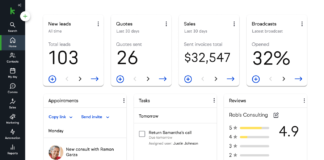Freelancing offers the flexibility to work from anywhere and achieve financial independence. It empowers individuals to turn skills into income.
Freelancing has become a popular career choice for many seeking flexibility and independence. By leveraging skills and expertise, freelancers can earn a living while working from anywhere in the world. The digital age provides numerous platforms and tools that make it easier than ever to find freelance work.
From writing and graphic design to programming and consulting, opportunities abound across various fields. Freelancers enjoy the freedom to choose projects, set their schedules, and balance work with personal life. Achieving success in freelancing requires dedication, effective time management, and continuous skill improvement. Embracing freelancing can lead to a fulfilling and financially rewarding career.
Introduction To Freelancing
Freelancing offers a unique way to earn money online. It provides freedom and flexibility. This guide will introduce you to the world of freelancing.
What Is Freelancing?
Freelancing involves working for yourself. You are not committed to one employer. Instead, you take on projects from various clients. These can be short-term or long-term.
Freelancers can work in many fields. Popular areas include writing, graphic design, programming, and marketing. You set your own hours and rates. This makes freelancing attractive for many people.
Benefits Of Freelancing
Freelancing offers many benefits. The most notable include:
- Flexibility: You can choose your own hours.
- Variety: Work on different projects.
- Independence: Be your own boss.
- Income Potential: Earn more with multiple clients.
Let’s break down these benefits further in a table:
| Benefit | Description |
|---|---|
| Flexibility | Set your own schedule. Work from anywhere. |
| Variety | Engage with different projects. Gain diverse experience. |
| Independence | Control your work environment. Make your own decisions. |
| Income Potential | More clients can mean more money. Set your own rates. |
Freelancing can be a fulfilling career choice. It offers the chance to balance life and work. Enjoy the freedom that comes with freelancing.

Credit: www.linkedin.com
Starting Your Freelance Journey
Embarking on your freelance journey offers the promise of freedom and flexibility. It allows you to be your own boss and work from anywhere. This section will guide you through the steps to start your freelance career.
Finding Your Niche
Choosing a niche is the first step in your freelancing journey. A niche helps you stand out in the crowded market. Here are some tips to find your niche:
- Identify your skills: List what you are good at.
- Research demand: Check what services are in demand.
- Analyze competition: Look at what others offer.
- Test the waters: Try different niches and see what works.
Building A Portfolio
Your portfolio is your showcase. It shows potential clients what you can do. Here’s how to build a strong portfolio:
- Select your best work: Choose projects that highlight your skills.
- Include diverse samples: Show a variety of work.
- Use visuals: Add images, videos, or links to your work.
- Write case studies: Explain the problem and your solution.
- Update regularly: Keep your portfolio fresh and current.
| Niche | Demand | Competition |
|---|---|---|
| Graphic Design | High | Medium |
| Content Writing | Medium | High |
| Web Development | High | High |
Platforms For Freelancers
Freelancing offers the freedom to work from anywhere. Finding the right platform is key to your success. Here, we dive into the best platforms for freelancers.
Popular Freelance Websites
Several websites help freelancers connect with clients. Below are some popular choices:
- Upwork: Offers a vast range of job categories.
- Fiverr: Best for quick and small tasks.
- Freelancer: Covers many fields and skills.
- Toptal: Ideal for high-end projects and experts.
- Guru: Simple to use and good for varied tasks.
Choosing The Right Platform
Picking the right platform depends on your skills and needs. Here are some factors to consider:
| Factor | Description |
|---|---|
| Job Categories | Look for platforms that match your skills. |
| Fee Structure | Check the fees charged by the platform. |
| User Interface | Choose a platform that is easy to navigate. |
| Client Quality | Opt for platforms with reputable clients. |
| Support Services | Ensure the platform offers good customer support. |
Decide based on your preferences and goals. The right platform helps you grow your freelance career.

Credit: www.redbubble.com
Setting Your Rates
Setting your rates as a freelancer can be challenging. Your rates reflect your skills, experience, and value. It’s important to price your services correctly. This ensures you attract clients while being fairly compensated.
Understanding Market Rates
Before setting your rates, research the market. Understand what others charge for similar services.
- Check freelance platforms like Upwork and Fiverr.
- Look at job boards and industry websites.
- Consider your experience and unique skills.
Use this data to determine a competitive rate. Remember, rates can vary by location, niche, and project complexity.
Negotiating With Clients
Once you have a base rate, be prepared to negotiate. Clients may want to discuss pricing.
- Start with your desired rate.
- Explain the value you bring to the project.
- Be open to compromises, but know your minimum.
Clearly outline what’s included in your rate. This avoids misunderstandings later. If a client wants a lower rate, adjust the scope of work accordingly.
| Service | Average Rate |
|---|---|
| Content Writing | $30-$50 per hour |
| Graphic Design | $40-$70 per hour |
| Web Development | $50-$100 per hour |
Setting your rates is a critical step in freelancing. By understanding market rates and negotiating effectively, you can secure fair compensation for your work.
Managing Your Freelance Business
Managing your freelance business can be challenging but also rewarding. Successful freelancers know the importance of effective management. It helps to balance work and personal life. This section will cover essential aspects like time and financial management.
Time Management Tips
Time management is crucial for freelancers. Here are some tips:
- Set clear goals for each day.
- Use a calendar to plan your tasks.
- Prioritize tasks based on deadlines.
- Take breaks to avoid burnout.
- Limit distractions during work hours.
Financial Management
Financial management ensures you make a living from freelancing. Follow these steps:
- Create a budget to track your income and expenses.
- Save a portion of your earnings for taxes.
- Use accounting software to manage invoices and payments.
- Set aside savings for emergencies.
- Review your finances monthly.
Here’s a simple budget table to help you get started:
| Category | Amount |
|---|---|
| Income | $3,000 |
| Expenses | $1,500 |
| Savings | $500 |
| Taxes | $500 |
| Net Profit | $500 |
Effective time and financial management will lead to freelancing success. It allows you to enjoy more freedom and stability.
Marketing Yourself
Freelancing offers a unique opportunity to work on your own terms. Marketing yourself is vital to ensure a steady stream of clients. With the right strategies, you can build a successful freelancing career.
Building An Online Presence
An online presence showcases your skills and attracts potential clients. Start by creating a professional website. Include a portfolio of your best work. A blog can also help you share your expertise and insights. Use social media platforms to reach a wider audience. LinkedIn, Twitter, and Instagram are popular choices for freelancers.
Ensure your profiles are complete and professional. Use a high-quality photo and a clear bio. Regularly update your profiles with new projects and achievements. Engage with your audience by posting valuable content. Respond to comments and messages promptly.
| Platform | Purpose |
|---|---|
| Website | Showcase portfolio and services |
| Professional networking | |
| Share updates and engage with industry | |
| Visual showcase of work |
Networking Strategies
Networking is crucial in freelancing. Join online communities related to your field. Participate in discussions and offer help. Attend virtual events and webinars to connect with industry leaders. Use these opportunities to showcase your knowledge and skills.
Collaborate with other freelancers. This can lead to referrals and joint projects. Always follow up after meeting someone new. Send a quick message to keep the connection alive.
- Join industry-specific forums and groups
- Attend virtual meetups and webinars
- Collaborate with fellow freelancers
- Follow up with new contacts
Networking can open doors to new opportunities. Build genuine relationships and be proactive. This will help you grow your freelance business.
Client Relationships
Building strong client relationships is key to a successful freelancing career. Good relationships make repeat business easier and lead to referrals. This section will cover how to communicate effectively and handle difficult clients.
Communicating Effectively
Effective communication is the backbone of a successful freelancing career. Here are some tips:
- Be clear and concise in your messages. Avoid jargon.
- Respond to emails and messages promptly. This shows professionalism.
- Use video calls for important discussions. It adds a personal touch.
- Set clear expectations at the start. This avoids misunderstandings.
Handling Difficult Clients
Not all clients will be easy to work with. Some may be demanding or unclear. Here are strategies to handle them:
- Stay calm and listen carefully to their concerns.
- Ask clarifying questions to understand their needs better.
- Provide solutions and alternatives. Show you are proactive.
- Set boundaries. Know when to say no.
- Document all communications. Keep records for reference.
Achieving Work-life Balance
Freelancing gives you the freedom to work from anywhere. But it’s easy to blur the lines between work and life. Achieving a good work-life balance is crucial. This helps maintain your health and happiness.
Setting Boundaries
Setting boundaries is very important. It helps you separate work from personal time. Here are a few tips:
- Set specific working hours.
- Communicate your availability to clients.
- Create a dedicated workspace.
Stick to your working hours. This prevents burnout. Inform clients about your schedule. This sets clear expectations. Use a separate room or corner as your office. This helps you focus better.
Self-care Tips
Self-care is essential for freelancers. It keeps you healthy and productive. Follow these tips:
- Take regular breaks.
- Exercise daily.
- Eat balanced meals.
- Get enough sleep.
Short breaks during work refresh your mind. Exercise keeps you fit and active. Eating well fuels your body. Good sleep ensures you wake up fresh and ready.

Credit: www.redbubble.com
Frequently Asked Questions
What Is Freelancing?
Freelancing is working independently for multiple clients. Freelancers offer services like writing, design, and coding. They choose projects and set their rates.
How Do I Start Freelancing Online?
Start by identifying your skills. Create a portfolio showcasing your work. Join freelance platforms like Upwork or Fiverr. Network and market yourself.
What Are The Best Freelance Platforms?
Popular platforms include Upwork, Fiverr, and Freelancer. Each platform has unique features. Choose one that fits your skills and needs.
How Can I Find Freelance Clients?
Use social media and networking events to find clients. Join relevant forums and groups. Cold email potential clients and showcase your portfolio.
Conclusion
Freelancing offers unmatched flexibility and financial independence. Embrace the digital economy and create your own success. With dedication and the right skills, making a living online is achievable. Start your freelancing journey today and unlock endless opportunities. Your dream of freelancing freedom is within reach.
Make the leap and thrive online.












